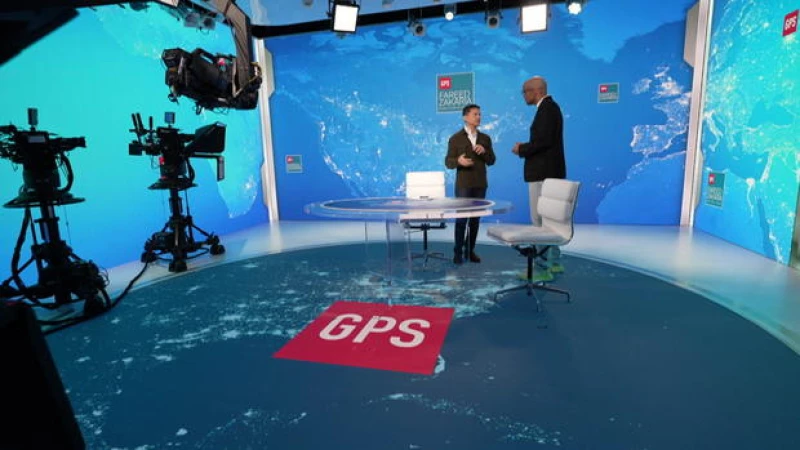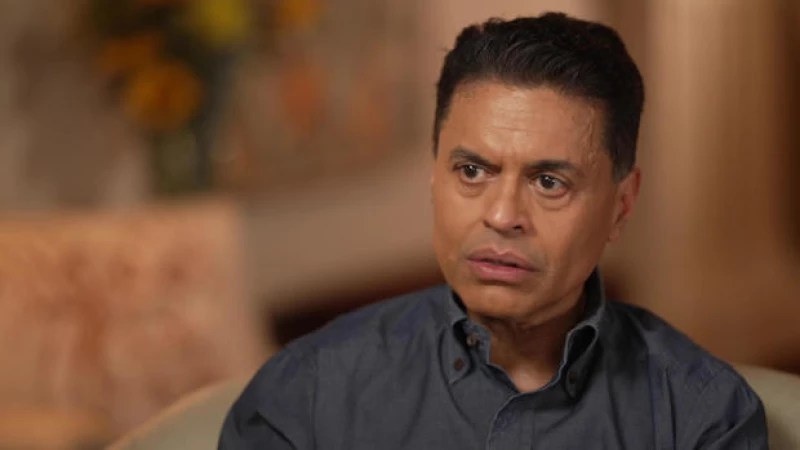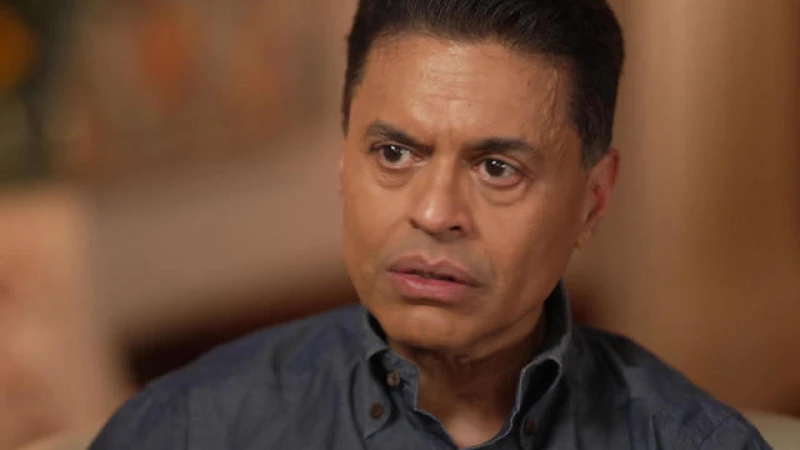Fareed Zakaria, the host of "GPS (Global Public Square)" on CNN, is on a mission to educate the public about international relations. Describing journalism as a form of public education, Zakaria, who is 60 years old, engages in insightful discussions on global issues in his digital studio.
With plasma screen walls surrounding him, Zakaria converses with scholars, U.S. presidents, and even the occasional celebrity, all done without any shouting. The focus is on meaningful dialogue and understanding.

Known for his optimism and non-partisan approach, Zakaria navigates the challenges of today's news environment. In a time where political affiliations are often front and center, Zakaria strives to maintain a neutral stance. He acknowledges the unique difficulties posed by the Trump presidency, emphasizing the importance of calling out falsehoods without necessarily taking a side.
Sanneh asked, "Is that uncomfortable for you? I get the sense that you did not get into this in order to become a partisan figure?"
"I don't pretend that I don't have views," Zakaria said. "But it's my analysis rooted in fact, rooted in history."
In terms of his politics, Zakaria said, "I find that on most issues these days, I'm left-of-center. When I was in college, I was a Reaganite. I was more right-of-center."
Born in Mumbai to Rafiq, a politician, and Fatma, a journalist and editor, Fareed came to America to go to college on a scholarship at Yale, which, he said, no one had heard of. "My dad, to his dying day, could never pronounce Yale. He would always call it Ale," Zakaria said. "So he'd be like, 'How are things at Ale?'"
His original plan was to get an education in the United States and then go back to India. "But very quickly, I have to confess, I kinda fell in love with America," he said.
He went on to Harvard, getting a Ph.D. in political science in 1993. On the side, he gained a culinary education. "I learned how to cook by watching Jacques Pépin on public television!" he said.
By 28, he was managing editor of Foreign Affairs magazine. In 2000, he joined Newsweek as a columnist.
He initially backed the Iraq War, a decision he has since reconsidered. Reflecting on his past stance, he expressed regret, stating, "In this instance, I believe I made an error in judgment. As someone who was raised in the Muslim faith, I was concerned about not appearing tough enough on issues within the Muslim community." He added, "There was a part of me that, I believe, sought to demonstrate my patriotism."
By 2015, he had labeled the Iraq war as "a failure and a grave mistake." Zakaria remarked, "The United States suffered a significant loss of credibility. It ultimately proved to be a tremendous drain on American resources and lives."
Throughout those years, Zakaria was a prominent figure—well-known for his columns in print media and as a television host, initially on PBS and later, from 2008 onwards, on CNN. However, in 2012, he faced allegations of plagiarism. This led to a brief suspension from both Time magazine (where he served as a contributing editor-at-large) and CNN.
Addressing the setbacks, he shared, "I've encountered these obstacles. Initially, there's a sense of defensiveness, and you question yourself, Wait a minute… However, upon reflection, you ask, Was this up to the standard of quality I strive for? The answer is no. So, I made a commitment to myself, Okay, I'm going to exercise three times more caution."
In his latest book, "Age of Revolutions" (released on March 26 by W.W. Norton), Zakaria delves into how societies both welcome and resist change.

"The ongoing information revolution has connected everyone, while simultaneously, there has been an identity revolution over the past few decades. People are asserting their individuality based on their sexual orientation, national origin, or skin color, striving to be themselves. However, this has left many feeling lost, anxious, and resistant to change. We are currently witnessing the repercussions of this backlash, and how well one navigates it determines their success or failure in the end."
Reflecting on the speed of recent societal changes, he expressed concern about a segment of the population feeling left behind. He stated, "There is a significant group in America who feel excluded from the benefits of societal evolution, and that is a worrisome trend. This sentiment harbors a form of anti-Americanism at its core. Loving one's country entails embracing its entirety."
Zakaria is not merely an observer but actively engages with global leaders, including private discussions with President Joe Biden. He mentioned, "The President has sought my insights on world affairs during White House consultations."
When asked about his impressions of President Biden's private demeanor and competence, Zakaria responded, "In my interactions with him, whether one-on-one or in small groups, he appears attentive, sharp, and notably sagacious. I believe he is effectively executing his presidential duties. However, maintaining the campaign trail pace demands immense energy."
Zakaria expressed his initial reluctance towards Biden's re-election campaign. However, as the campaign progresses, he now believes the choice is clear.
Despite this, Zakaria admitted that maintaining optimism in the current climate is challenging.
"I worry greatly about the current state of America," he remarked. "Previously, there were guidelines and gatekeepers, but in this revolutionary era, those have disappeared. There is a lack of self-regulation, making it difficult to draw a line and say, 'This is unacceptable.'
"I will hold onto my optimism. We will navigate through this. However, it is undeniably a tumultuous period."
READ AN EXCERPT: "Age of Revolutions" by Fareed Zakaria
For more info:
- "Age of Revolutions: Progress and Backlash from 1600 to the Present" by Fareed Zakaria (W.W. Norton), in Hardcover, eBook and Audio formats, available March 26 via Amazon, Barnes & Noble and Bookshop.org
- "GPS" hosted by Fareed Zakaria on CNN
Story produced by Mary Raffalli. Editor: Robert Kaplan.







